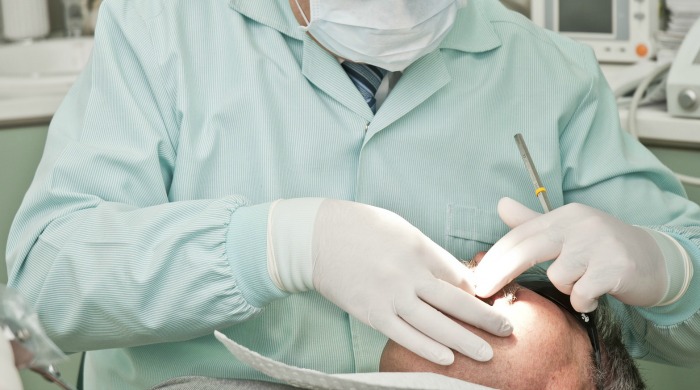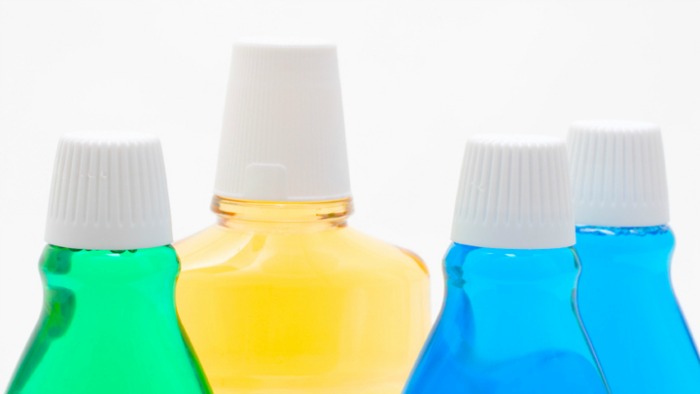Living with dry mouth: Causes, symptoms and treatments

Dry mouth can be an irritating condition for many, and it’s something millions of people are living with everyday.
It’s believed that 10 per cent of the general population are living with dry mouth, with around a quarter of all older people impacted by the condition at some point in time. Typically, dry mouth is a result of another health problem, rather than being a health condition in its own right.
If you’ve been wondering why your mouth has been feeling pastier than normal or why nothing you do seems to be working, there is a lot of information you should know.
What causes it
Because there isn’t a singular cause of dry mouth, the condition can be hard to treat. One of the leading causes, particularly in over-60s, is medication. Better Health suggests there are over 600 different drugs that can increase the chances of dry mouth. These include, but aren’t limited to, high blood pressure tablets, antidepressants and sedatives. A range of cancer treatments have also been known to restrict salivary glands, resulting in a dryer mouth.
It seems obvious, but dehydration is another main cause. If you’re not regularly providing your body with fluid, your saliva glands can’t keep up, often producing smelly and thick saliva. If you are living with other serious medical conditions such as kidney failure and diarrhoea, this can also lead to dehydration. Other diseases such as diabetes, Parkinson’s disease, cerebral palsy and even nerve problems can also impact the levels of saliva.
Infections and viruses have the potential to impact salivary glands, while obstructions such as tonsil stones and even food particles can also stop ducts from doing their job correctly.

Why it’s harmful
A lack of saliva in the mouth isn’t just irritating; it can also lead to an array of health problems. One of the major concerns is tooth decay. While most people associate decay with an unhealthy diet or a lack of hygiene, research suggests that dry mouth can be just as devastating when it comes to the health of your teeth. A reduced amount of saliva results in gum disease, with under layers of the tooth becoming exposed in some cases. This layer, known as dentine, doesn’t have the ability to fight off acids and sugars, meaning that it rots a lot quicker.
In addition to protecting your teeth, saliva is usually there to fight off fungi and viruses. When the levels of saliva are reduced, your mouth essentially becomes a breeding hotspot for these harmful bacteria.
Dry mouth also makes it harder to comfortably chew and moisten food, while it can also decrease the levels of sensitivity in the mouth. Others find it harder to communicate as efficiently as possible.

Side effects of dry mouth
Dry mouth can impact people in an array of different ways. In addition to your mouth feeling disgusting and dry, there are a number of other things to keep an eye out for.
The first is the consistency of your saliva. If it feels thicker or particularly stringy, it could be a sign of dry mouth. Another factor to observe is your tongue. If you notice it feels rougher than normal or if it constantly sticks to your mouth, you may need to speak to your dentist. Also make sure there isn’t a thick layer of growth or thrush forming on it.
Take note of the food you eat and how easy it is for you to chew and swallow. If you’re snacking on something like a cracker or chips and you notice that it is becoming almost impossible to break down, it could be something to take note of.

Bad breath is never pleasant, but it doesn’t necessarily mean you haven’t been brushing your teeth. A potent and lingering smell is another major symptom of dry mouth, as are mouth ulcers, blisters and cracked lips.
If you’ve been struggling to keep your dentures in place, it could also be a sign that your body isn’t producing enough saliva. Also be aware that a lingering cough, scratchy throat and even dry eyes could also be a result of the condition.
Other things to look out for
While a lot of people simply look to their mouth, the condition is known to have an array of other side effects on the body. In women, it can lead to a rise in vaginal thrush infections, while weight loss and aching joints are another less-obvious symptom.
It can play havoc on your digestive system, with many suffers saying they have trouble going to the bathroom, too. Others say they feel sluggish and unwell, while some even note a lack of smell as a result of dry mouth.

How to prevent it
Treating dry mouth really depends on altering what is causing it in the first place. Better Health suggests that for medication that is causing a lack of saliva, an alternative may be available. It’s best to speak directly with your doctor or GP to see what alternatives are available.
There are also a number of saliva substitutes and products that encourage lubrication of the mouth. Some, including toothpastes and mouthwashes, are readily available at chemists and supermarkets, while others will need to be prescribed to you. If you are going to use a normal mouthwash, try and opt for an alcohol-free version so it doesn’t dry your mouth out further.

While increasing fluid intake can help, it’s important to try and avoid too many caffeinated beverages where possible. Also limit your intake of sugary foods and drinks as this may also contribute to the problem.
Retraining yourself how to breathe is another useful tip. Rather than breathing through your mouth, try and breathe through your nose and even use a humidifier at night to increase levels of moisture in your room.
In extreme cases, surgery is also available. If you’re ever unsure, it’s always a good idea to chat directly with a health professional. They will be able to examine you directly and give you a treatment plan that is unique to your needs.
What do you think? Do you live with dry mouth? How do you manage the condition?
With Facebook removing news sites from your feeds we ask that you sign up for Starts at 60’s emailers here. And to keep us on your wall, join some of our new Facebook groups and clubs:
See news on the change and links to all our other clubs and groups here.








 Proudly Australian owned and operated
Proudly Australian owned and operated